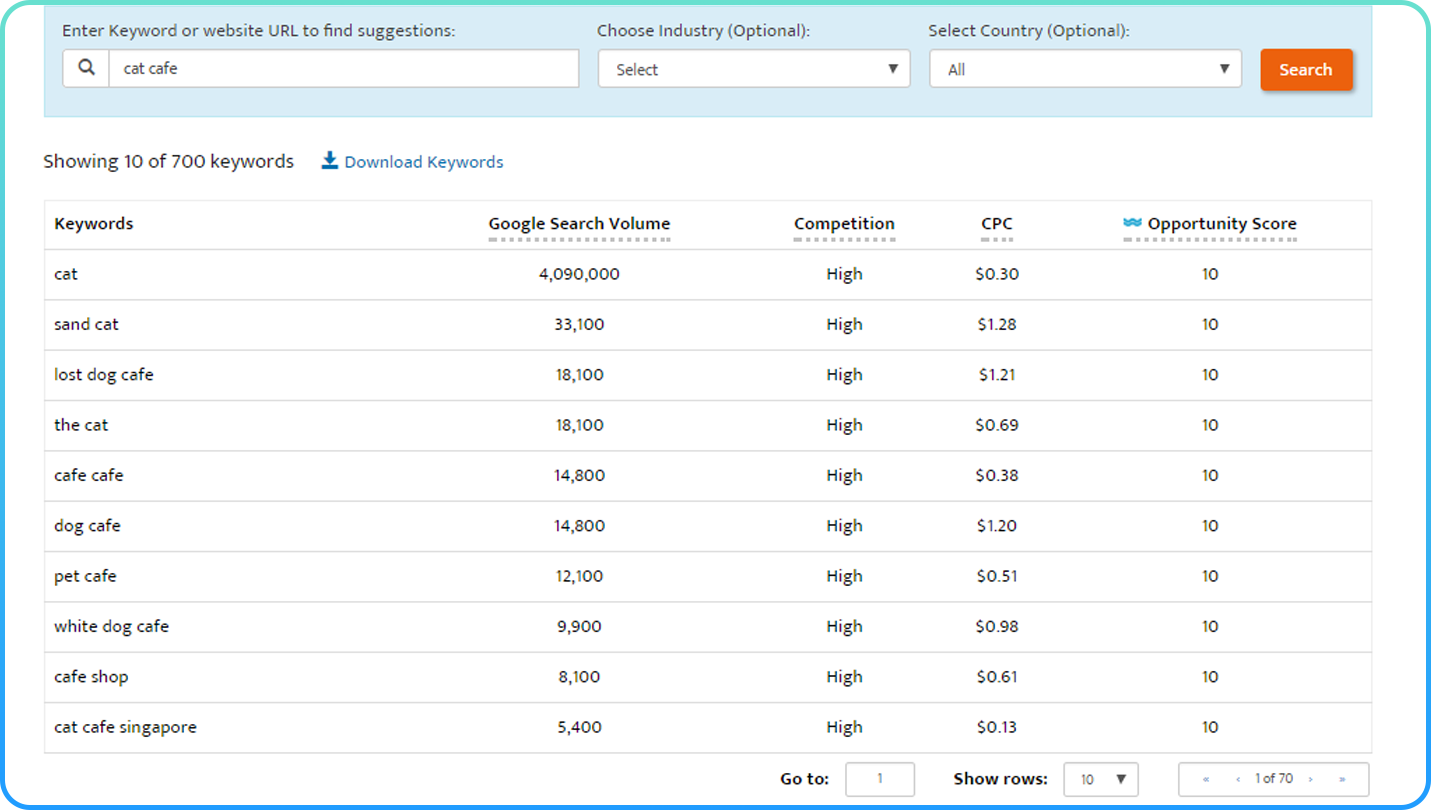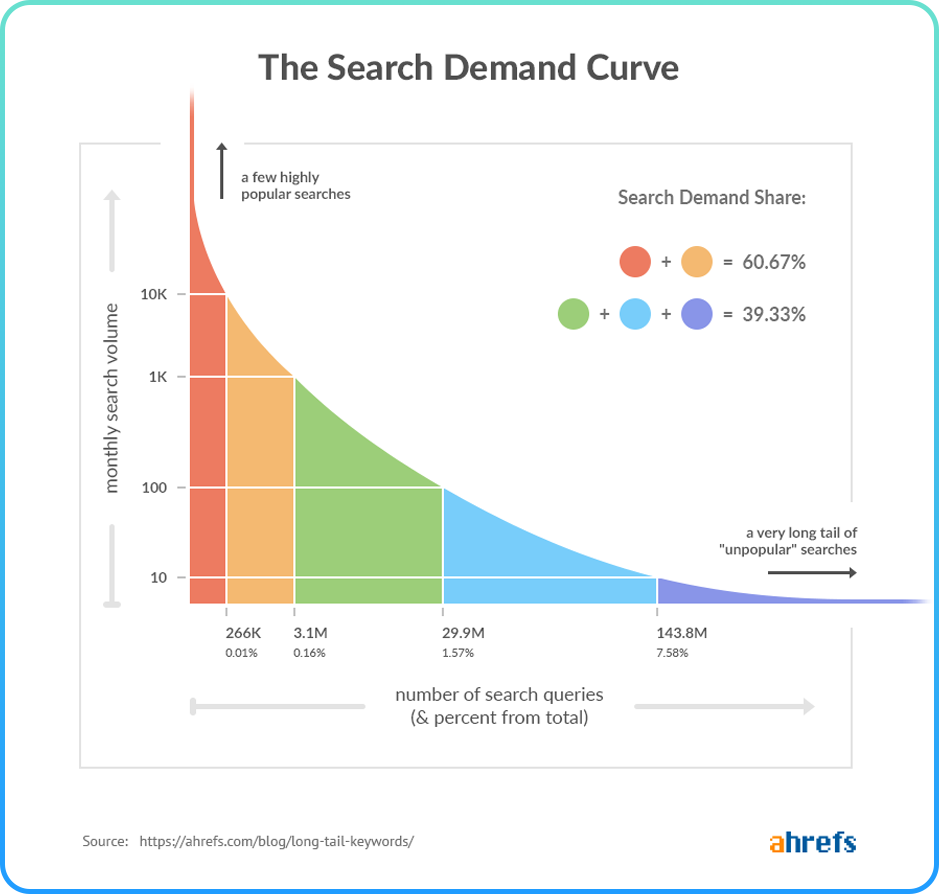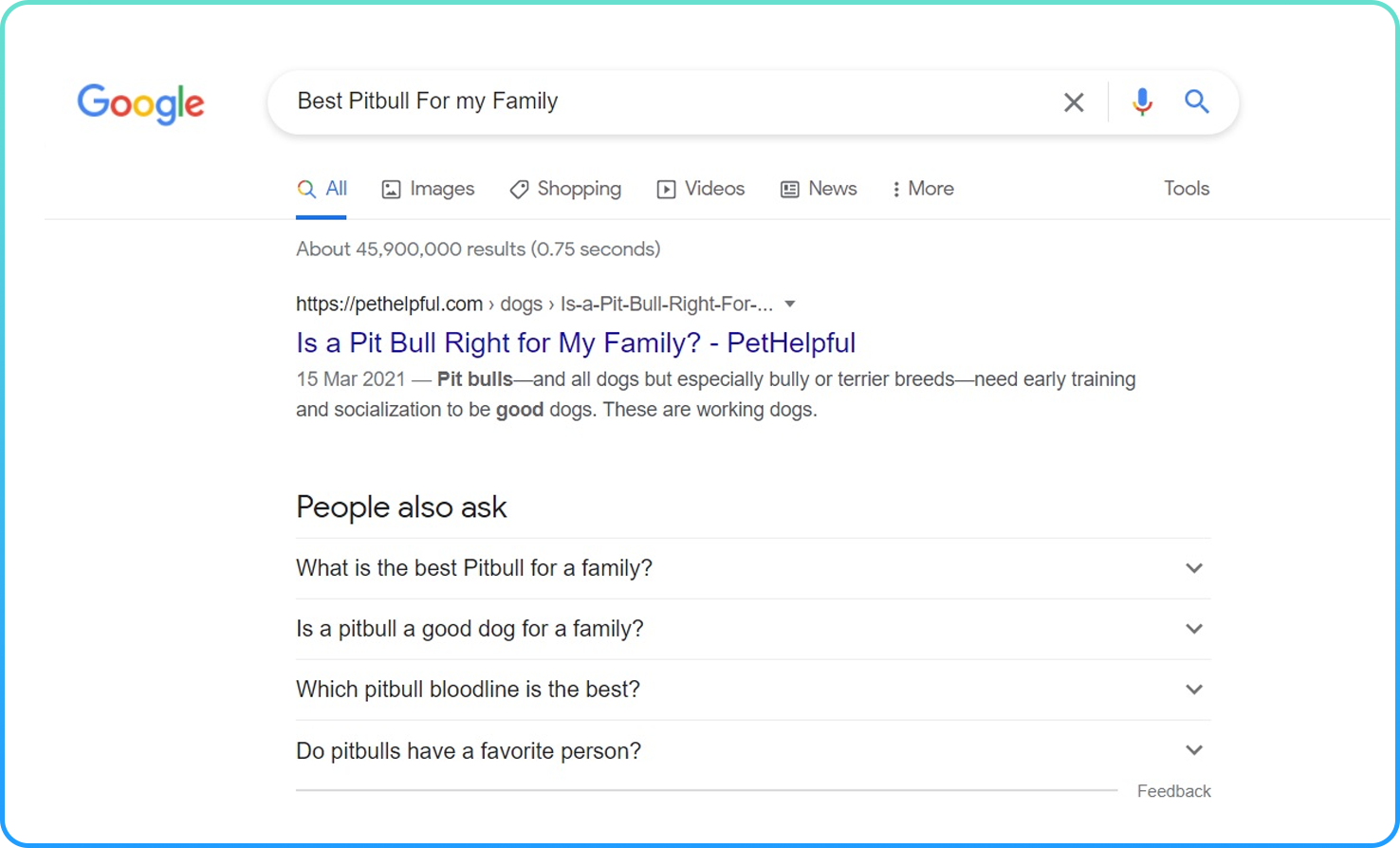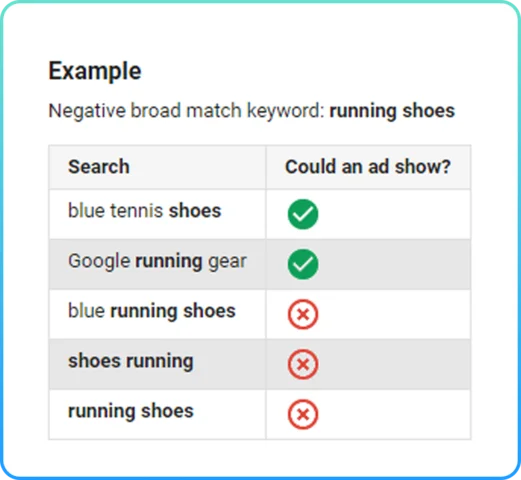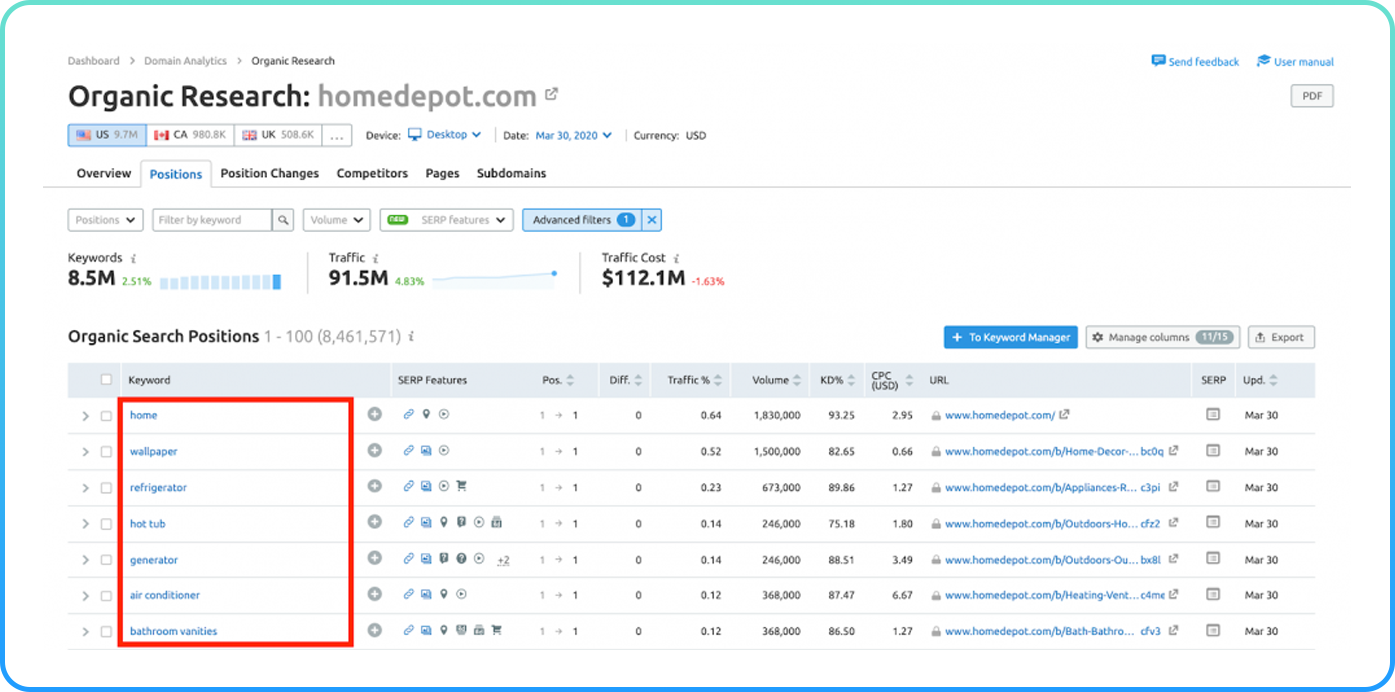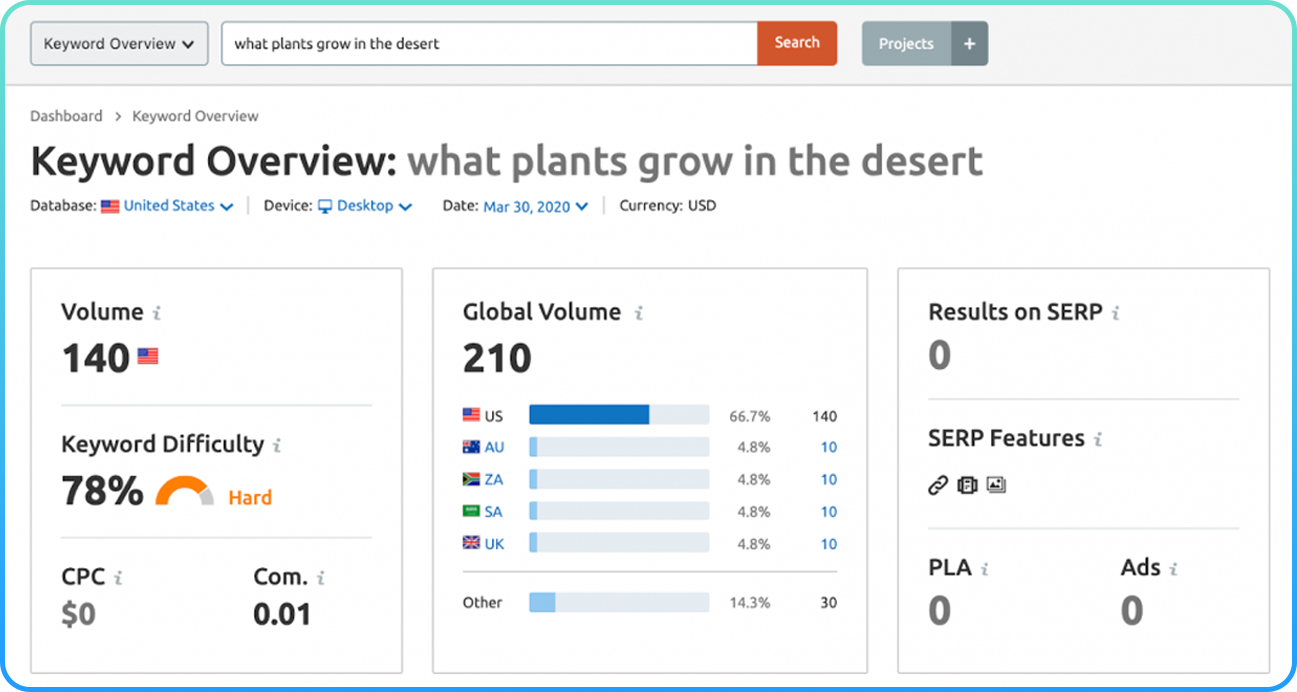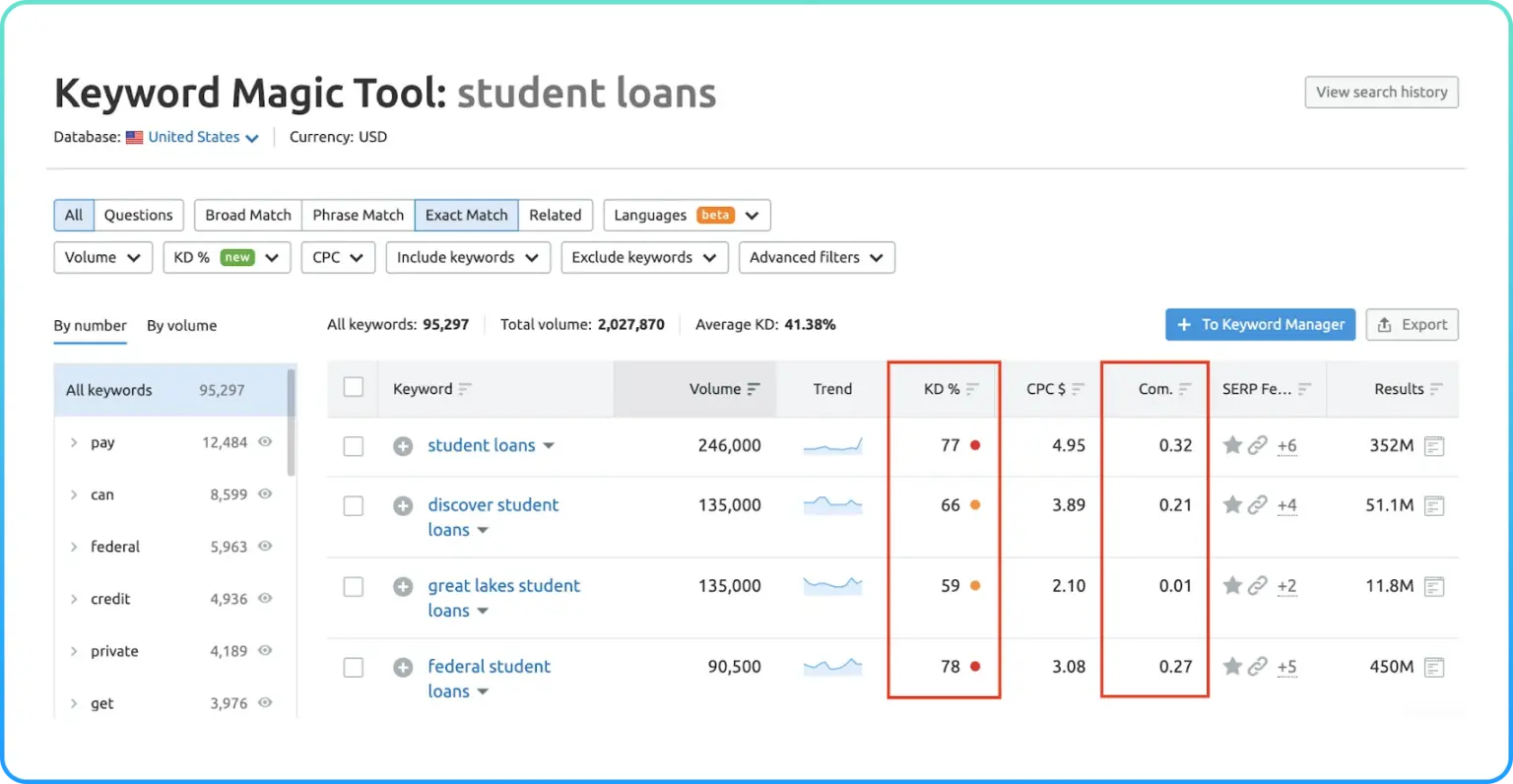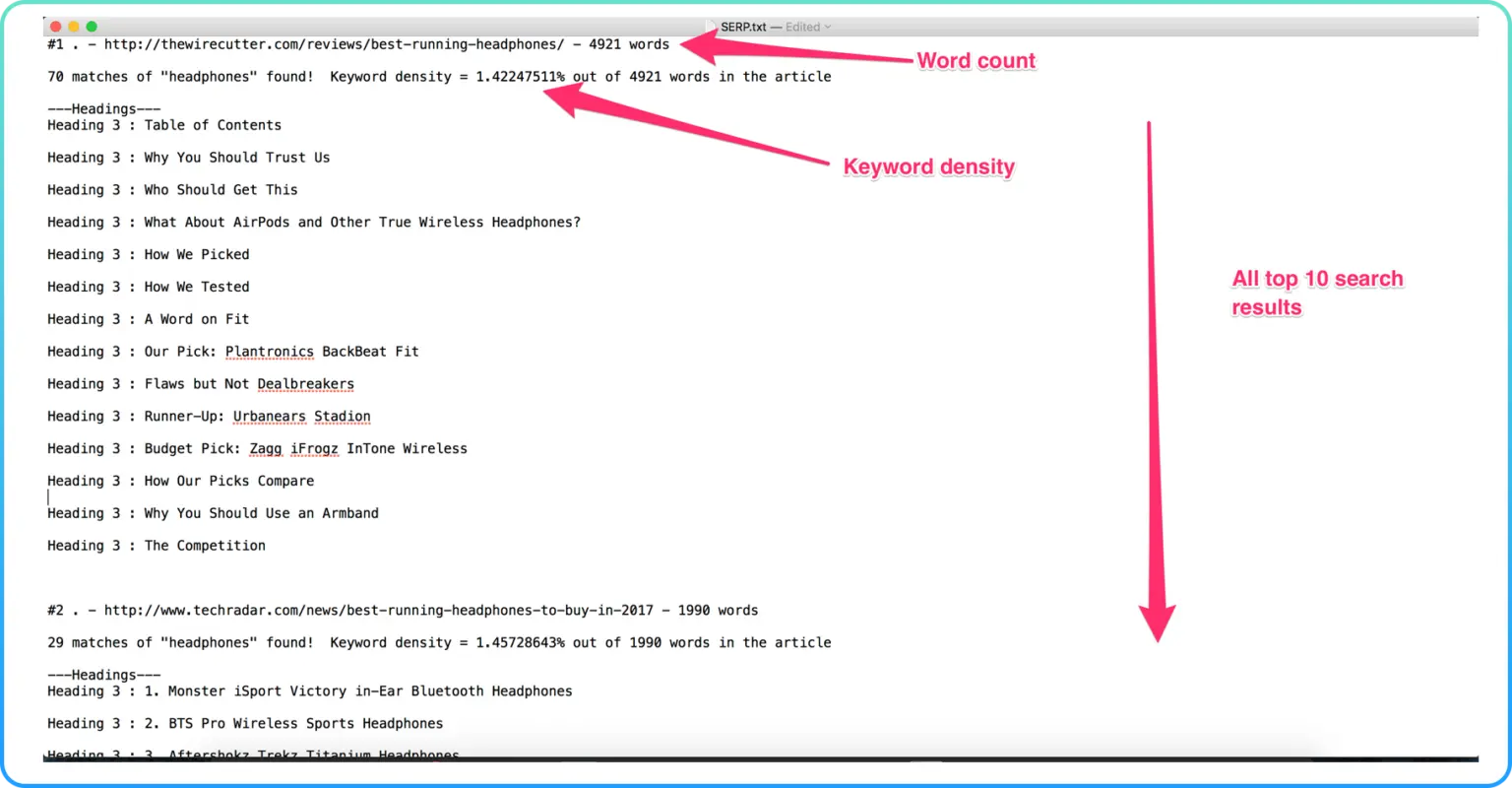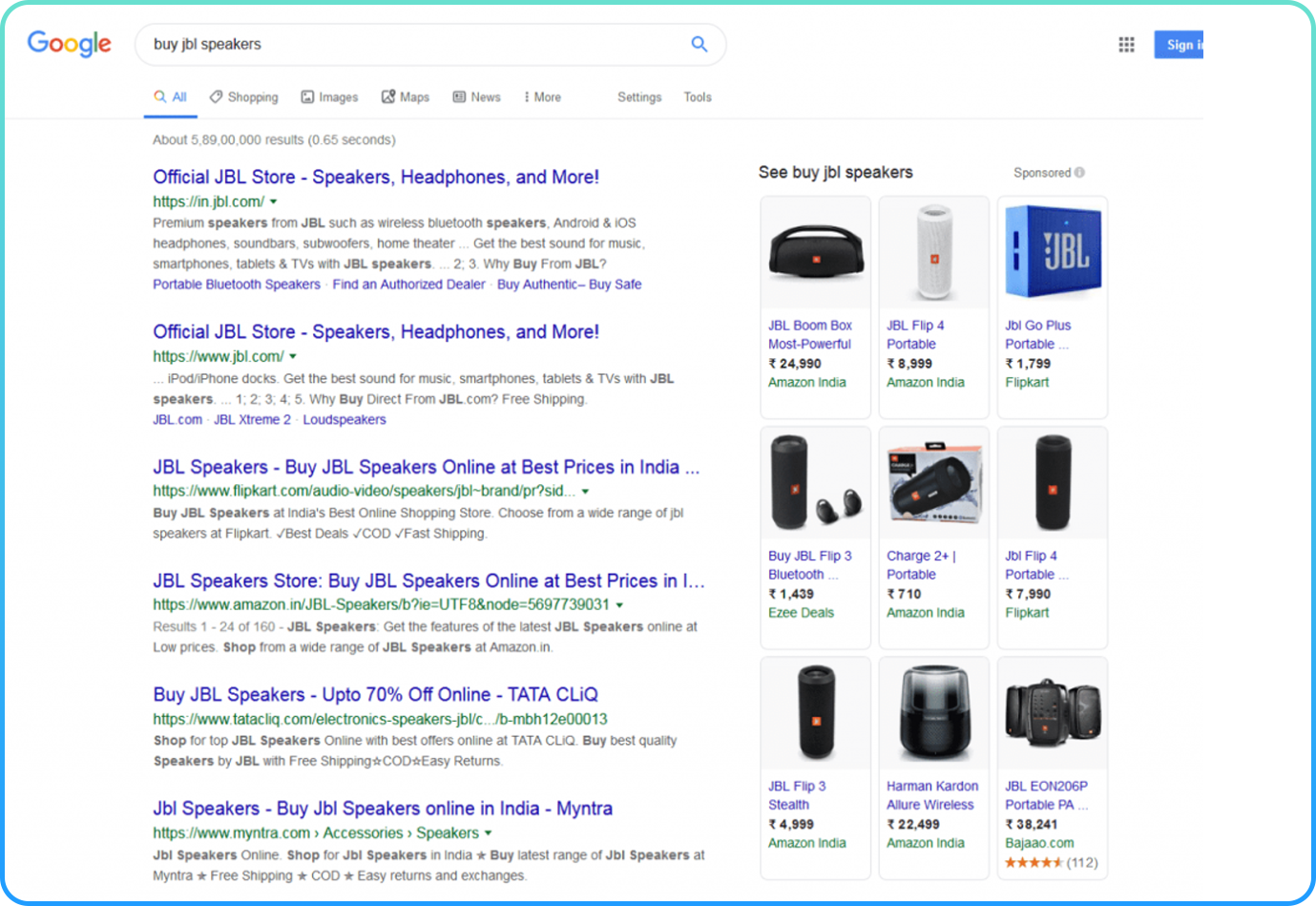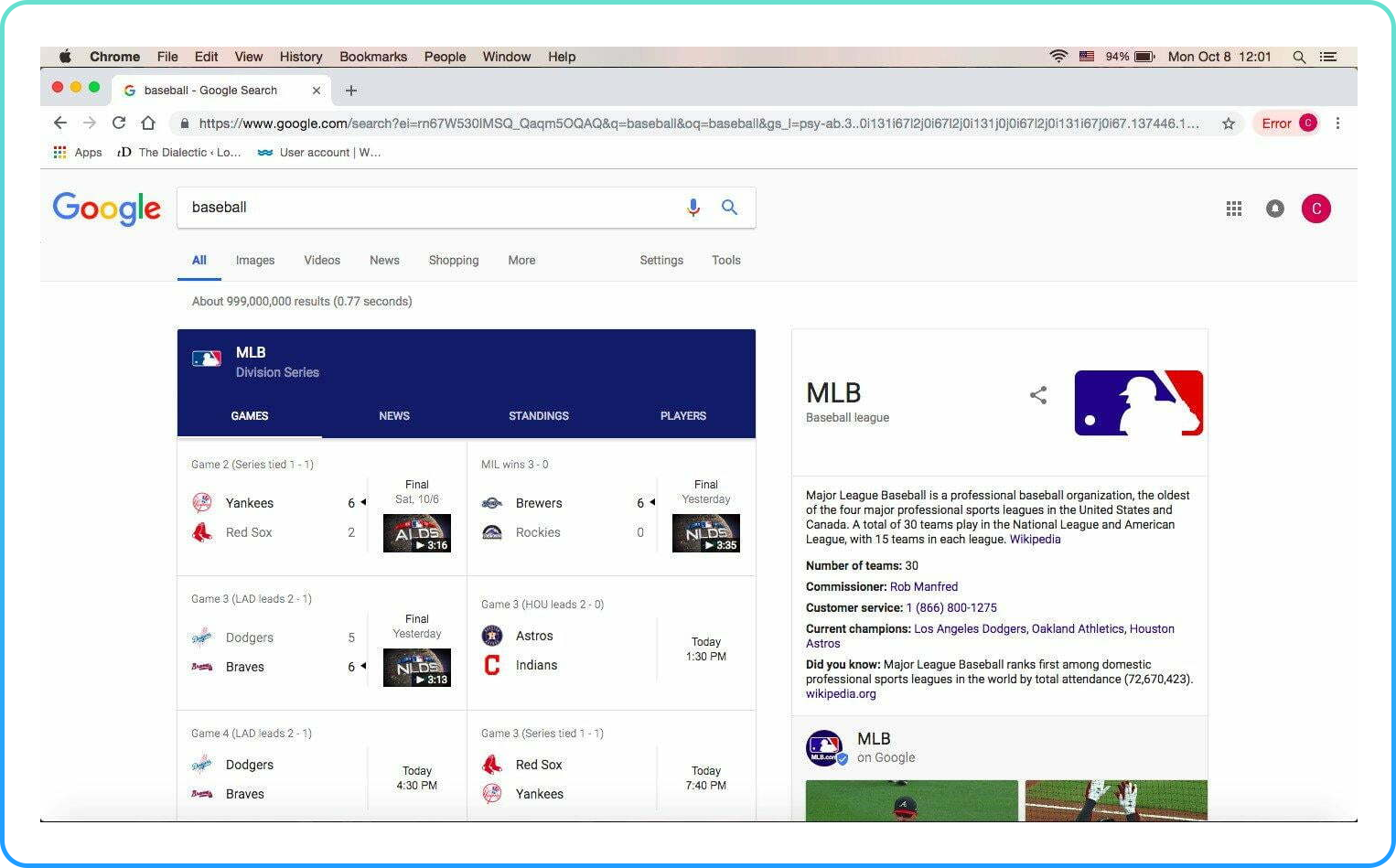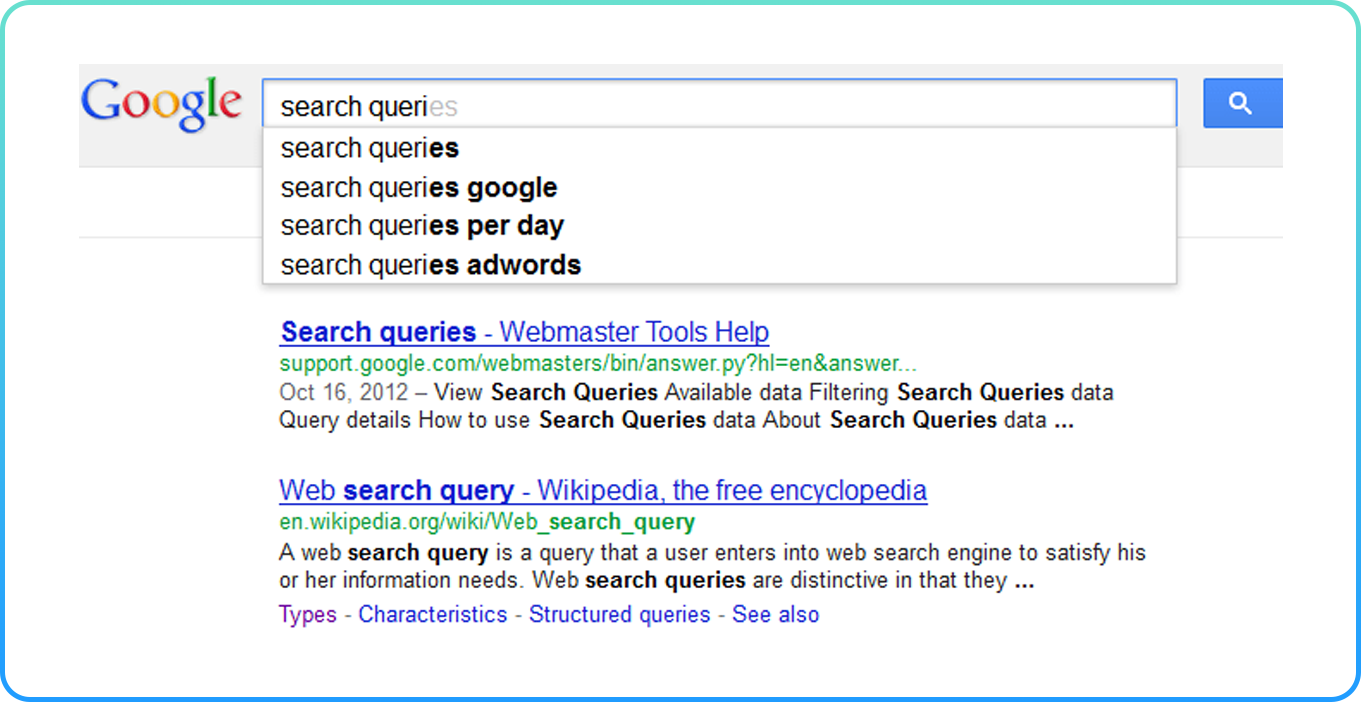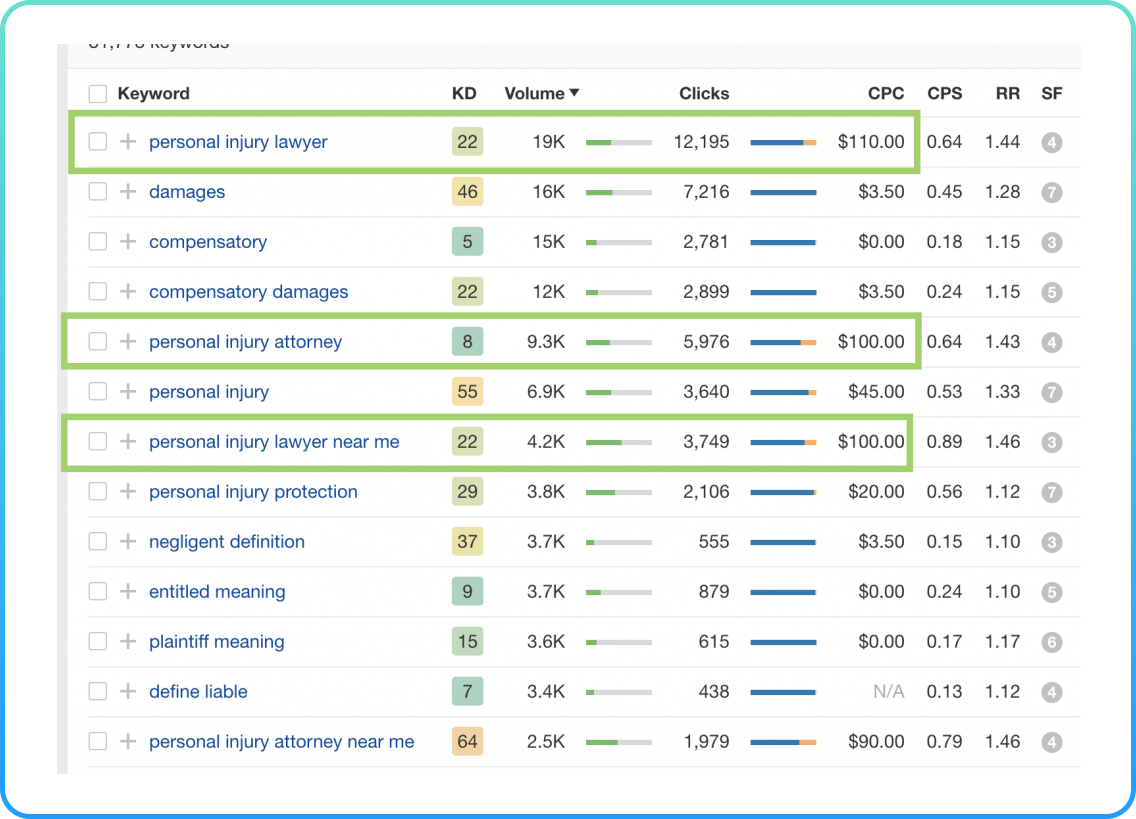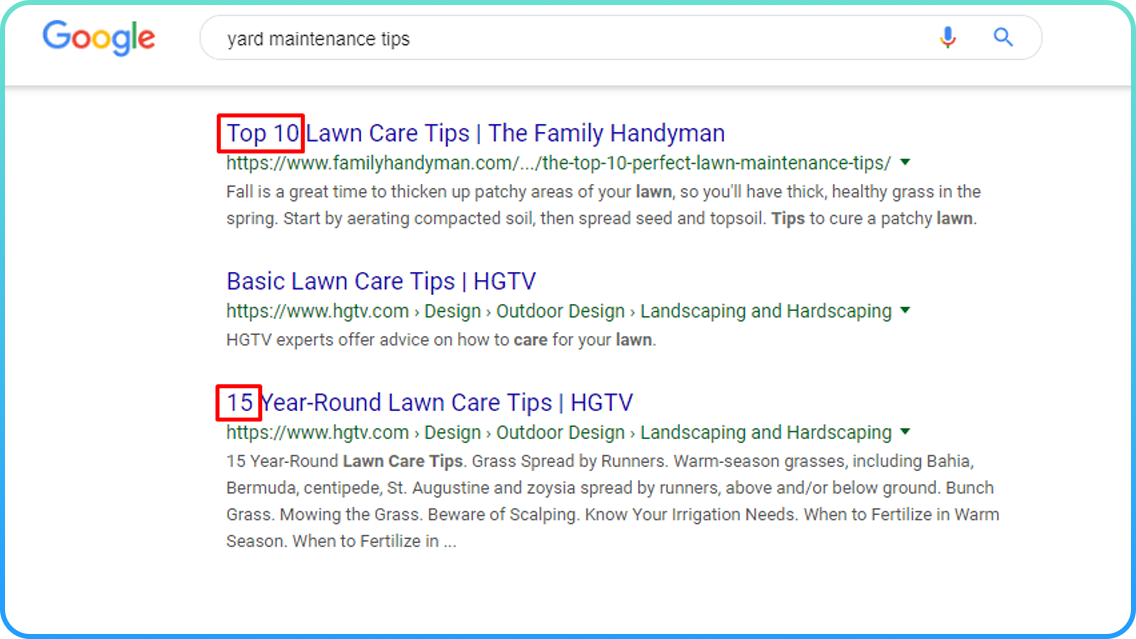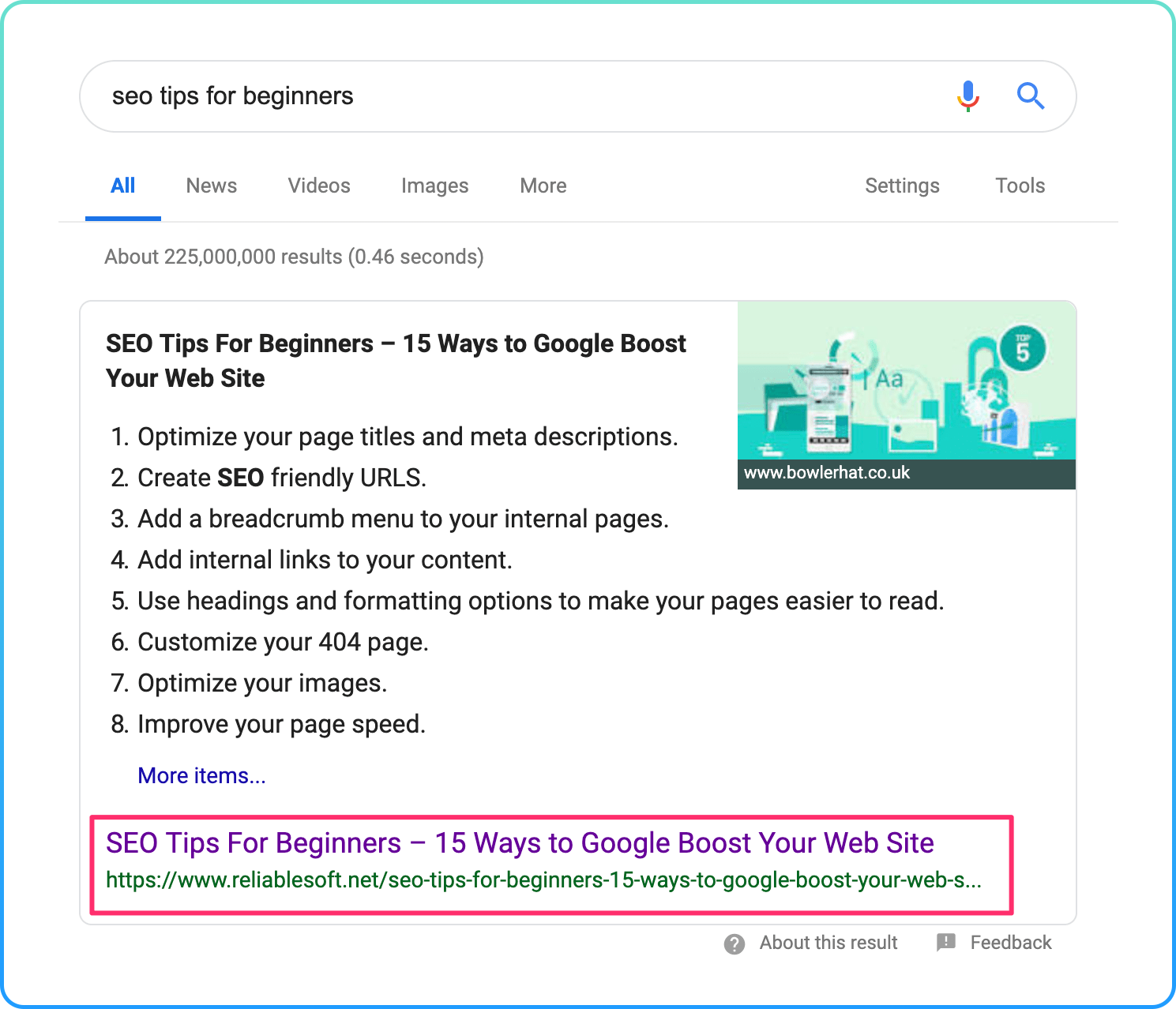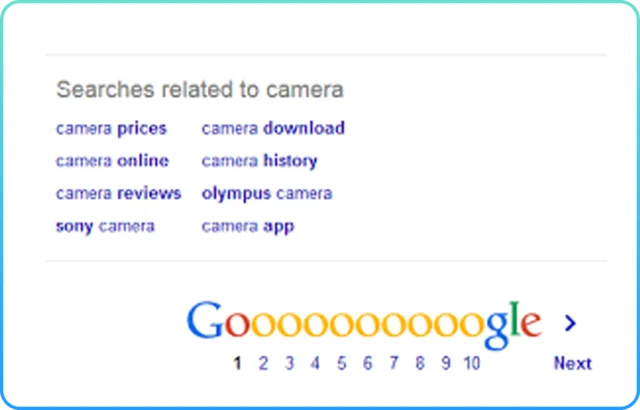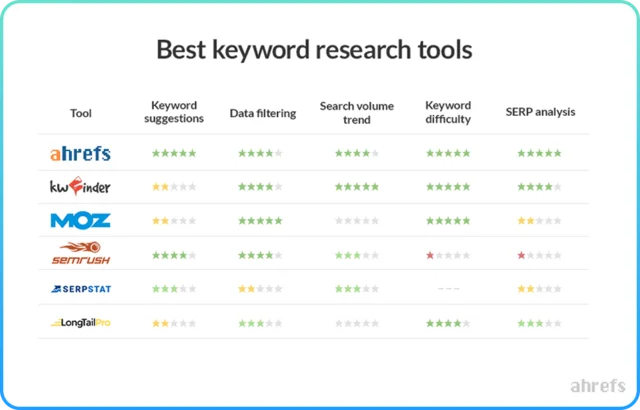While Google’s constant algorithm adjustments keep inbound marketers on their feet, one thing has been fairly consistent for inbound marketers trying to optimize their content for their website’s Search Engine Optimization. One thing arises as to the most important element: keyword search.
Keywords are themes and concepts that define the subject matter of your content. They’re the phrases that people type into search engines, often known as “search queries” in SEO. These are your core keywords if you condense everything on your website — all the photos, video, content, and so on — to basic words and phrases.
When researching keywords in connection to SEO, you’ll be overwhelmed with keyword research material. Of course, if you want your page to rank, this is important. But it’s also essential to know what a keyword’s fundamental concept is. And that’s what we’re going to discuss here.
What Is Keyword Research?
Keyword research can reveal queries to target and their popularity, ranking difficulty, and more. If you’re just getting started with do it yourself SEO, keyword research is often the first hands-on task that helps you understand how your audience searches and what they care about.
We hear more and more about how much SEO keyword research has changed in the last ten years and how irrelevant keywords are becoming to our capability to rank effectively for the searches people conduct daily.
To some extent, this is correct; in the perspective of SEOP experts and the SEO community, choosing specific keywords that perfectly match a visitor’s search is no longer the most significant ranking element. Rather, it’s about the keyword’s intent and whether or not a piece of content fulfills that intent (we’ll get into that in a minute).
However, this does not imply that keyword research is no longer relevant.
Keyword research reveals what topics people are interested in and how popular certain topics are with your target audience if you use the proper SEO tools. Generally speaking, The keyword here is topics: you may select and organize your material into topics you wish to generate content on by studying keywords that receive a high number of monthly searches. Then, based on these topics, you may decide which keywords to search for and target.
You may address the questions that most of your audience wants to answer by studying keywords for their popularity on search engines, keyword density, search volume, and general-purpose.
Long-Tail Keywords
Keywords can be vast and broad-reaching (commonly referred to as “head keywords”) or a more specialized collection of many phrases (sometimes referred to as “long-tail keywords”).
Because they frequently have alluringly high search traffic, singular keywords may seem to be your ultimate goal. They do, however, generally face strong competition in Google’s results and on Google Ads. For example, you may want your boutique apparel business to rank for “clothes,” but competing with Zara and Etsy will be difficult.
Aside from the fierce competition, singular keywords might be vexingly ambiguous. For example, you don’t know if someone for “dog” wants a list of dog breeds, information on dog food, a store that sells a dog collar, or just a website with adorable dog pictures.
Long-tail keywords are generally more specific in their intent. “Best Pitbull For my Family,” for example, or “Dog Collars Store In New York” Long-tail keywords also have less competition, allowing a smaller website to break in and create a name for itself in the SERPs. Likewise, long-tail keywords are queries that have a low search volume but have a very particular purpose.
SEO long-tail keywords can allow your website to stand out from the crowd and give valuable assistance to consumers.
Consider this: isn’t it a wonderful feeling whenever you type a super-specific search on Google and receive the perfect, super-specific answer? It would be best if you aimed to give those looking for solutions in your market that feeling of wholesomeness.
Negative Keywords
You may add these keywords to Google’s Keyword Planner to specify where your ads should not show.
By adding the term “free” as a negative keyword, you may notify Google Ads not to display your ads to anyone who types “free” into their search.
Because Google Ads sets your targets as “broad match,” your ad may appear on a term’s result page that isn’t precisely the keywords you specified but is closely similar. Negative keywords allow you to define exactly what you don’t want your advertisements to appear for.
Why Are Keywords Important?
The content on a page is one of the factors Google considers when ranking it. Therefore, it examines the text on web pages. Consider this: if every phrase on, say, a blog article on a produce blog post is repeated twice, then all of the words are of equal value.
Google will have no idea which terms are significant and which aren’t. Instead, the keyword phrase you choose serves as clues to Google and other search engines, indicating what the page or post is about. So, if you want Google Analytics to comprehend what your website is about, you’ll need to use it frequently.
However, Google isn’t the only factor why keyword research matters. Actually, it’s less important since you should constantly focus on the user: your visitors and prospective customers. You want visitors to find your website when they type in a specific keyword or key phrase when it comes to SEO. Therefore, you have to get into your audience’s minds and use the terms they use while searching.
Because your text doesn’t match what your target audience is looking for, you’ll never get the visits you want or need if you employ the wrong keywords. But, on the other hand, your business can grow if you utilize the terms that customers are looking for. So, your keywords should represent what your target audience is looking for.
You’ll wind up with the incorrect audience or none at all if you choose the wrong keywords. That is why selecting the appropriate keywords is important.
Why Choose Keywords?
Keywords are your strategy for an online business; they are the wars you choose to battle in the hopes of outshining your competitors and sending individuals who use search engines in your target market to your site rather than theirs, right?!
You may see a website’s strengths and areas where they shine over their competition by looking at the keywords that it ranks for (aka its keyword portfolio).
For example, you can determine what their website is about and what items they promote online by looking at all the keyword positions that home depot ranks for.
You don’t want to advertise for the most popular keywords related to your product or business since they’re too competitive and pricey.
You also don’t want to target specific keywords that aren’t popular when people search to find keywords on their inquiry. This is a way to lose potential customers. So, how do you go about conducting keyword research? It’s critical to comprehend the qualities that you can utilize to determine the worth of a keyword.
Qualities Of Keyword
The following are the qualities of keywords to know more about keyword research:
Search Volume
The number of times a keyword is searched on a search engine like Google is search volume. Therefore, a website owner can utilize many keyword research tools to choose keywords to generate more search volume.
For instance, Semrush measures search volume in terms of average monthly searches by location.
For example, “What plants grow in the desert” has 140 searches per month in the United States as of March 2020. It had a total volume of 210, as you can see.
This metric allows you to determine how popular a certain search is and how much potential traffic to your site can be yielded using content strategy and anticipate what people are searching for often.
Investing in a keyword with a high keyword search volume does have the obvious potential to increase the number of visits to your website. However, saying it is easier than doing it.
Volume isn’t the only factor that influences how difficult it is to rank. You’ll need to check into the degree of competition for a keyword to understand this more.
You should be aware of the competition regardless of how large a keyword’s search traffic is. The more popular a term is, the more probably there will be many competing websites and marketing companies fighting for first place.
Keyword Competitiveness
Most keyword research tool offers a measure for assessing competition; the two most common metrics in SEO tools are:
Keyword Difficulty
This measure indicates how difficult it is to rank at the top of the search results page organically and generate organic traffic simultaneously. This is determined by the strength and trustworthiness of the first-page websites. It would help if you gave something greater in the eyes of Google to outrank what is currently there.
Competitive Density
This measure indicates how difficult it is to rank an ad at the top of the search results page. This is determined by the cost of the bids and the strength of the present advertisers.
Keyword Difficulty aids in the management of your SEO strategy, while Competitive Density aids in the prioritization of your advertising campaign.
Keyword Wordcount
The number of words in a phrase is referred to as the word count.
The search volume and competitiveness of the query are more relevant than the number of words in the phrase when searching for phrases in a word research tool and other SEO tools. Word count, on the other hand, is still a useful tool for fine-tuning your research.
For example, you can filter a set of relevant keywords by word count in a keyword research tool to see only keywords with at least 5 words in them.
Why would you want to do something like this? In this way, you can locate more precise searches and have a better understanding of what each search is looking for.
Keyword Intent
The search intent of keywords reveals what people are searching for and what they want to accomplish. People utilize a search engine for every query and goal under the sun; come on, it’s 2022!
Is it possible that they’re searching for anything to buy? Is it just a definition they’re searching for?
Are they looking around for information and to see what they have to offer but don’t want to make a purchase just yet?
In the SEO community, search intent has been broadly described as being capable of dividing into three categories:
Transactional intent
Queries that indicate a strong desire to purchase on a website.
Navigational intent
Queries seeking information such as instructions, facts, knowledge, and so on but do not have the express aim of making a transaction in connection with the search.
Informational intent
Queries that indicate a desire to see a certain website or content.
Cost of the Keyword
When it comes to advertising, each term has a cost — a “cost per click” (CPC) that indicates how much it costs an advertiser each time a searcher clicks on their ad after looking for the keyword.
To manage your marketing budget and estimate the cost of a campaign, You must evaluate the CPCs of your target keywords while designing an ad campaign.
Is it efficient to pay roughly $5 to attract visitors to visit your site who searched for “magic” on Google?
That’s the question.
Optimizing Keywords
To optimize for keywords, most guides recommend that you do the following:
Include the keyword in the URL and the title tag,
Use the keyword throughout the whole web page; and, Long-tail keywords should be used in your copy.
Although many of those suggestions make sense, they aren’t the primary approach to optimize your keyword search.
Matching search intent is the most effective method for optimizing keywords. It also helps to understand how search engines discover your content through crawling SEO — the process that search engine bots use to access and index your web pages before ranking them.
We spoke on this briefly before, but it’s worth repeating because it’s important. It’s certainly not going to work if you try to rank for “cast iron skillet” using a blog post. People searching in the buying phase, not the learning mode. So, the first five results are all eCommerce product and category websites.
However, providing the correct type of content isn’t the only way to match search intent. You could also discuss the items that searchers anticipate seeing.
Let’s suppose you would like to rank for the term “SEO.”
From the present top-ranking sites, you can tell that searchers like blog posts, so that’s the type of material, you’ll need to generate. But what should you write about, exactly? What should your post’s angle be?
Browsing at the top-ranking websites will give you more keyword ideas on how to optimize and create content.
Almost all of the entries in this instance use the same approach: “what is SEO?”
You should do the same if you want to have the highest site to rank for this query.
Don’t stop there, though. Check out what the top-ranking pages have to offer. Almost every page that ranks for “SEO” cover three subtopics, for example:
- What is SEO?
- Why is SEO important?
- How to do SEO?
This indicates that most searchers are interested in learning the answers to those questions; therefore, you should include them in your content.
That is not the end.
You must also…
Look for closely related search terms
When searching for the best keywords, you may have previously considered this step. I mean, it’s a fantastic method to get those lists filled up!
If you’re having trouble coming up with more keywords for a certain topic, look at the related keywords that show when you type in a keyword into Google. You’ll get some suggestions for searches similar to your initial input if you key in your keyword and scroll down Google’s results. In addition, these keywords could give you some suggestions for other keywords to consider.
Do you want a bonus? Then, look up some of those similar keywords by typing in a few of them.
Make the most of keyword SEO tools
Keyword research and SEO tools like Ahrefs, SEMrush, and Ubersuggest may help you produce new keyword ideas based on exact match keywords based on the ideas you’ve already developed.
Understand that there are no “best” keywords, only ones that your target audience uses often. As such, it’s up to you to devise a plan that will aid in page ranking and traffic generation.
In other words,
Relevance, authority, and traffic will all be factors in determining the optimal keywords for your SEO campaign. You wish to identify highly searched terms that you may compete for depending on the following criteria:
- Level of competition; and,
- Your capacity to create material that is of higher quality than what is presently ranked.
And if you ever wonder whether all this effort is worth it, just look at current SEO ROI statistics, which consistently show how effective organic traffic can be compared to paid acquisition over time.
And that’s all there is to it!
You now have a list of keywords to keep you focused on the correct topics for your website and achieve short- and long-term benefits.
Make sure to plan and re-evaluate your keywords every few months to avoid keyword stuffing— once a quarter is a decent starting point, but some websites like to do it more frequently. As your authority in the SERPs grows, you’ll be able to introduce more and more keywords to your keyword lists to handle as you focus on preserving your existing presence and then expanding into new areas.
Now, go and use what you’ve learned today to make your website attract more visitors!

